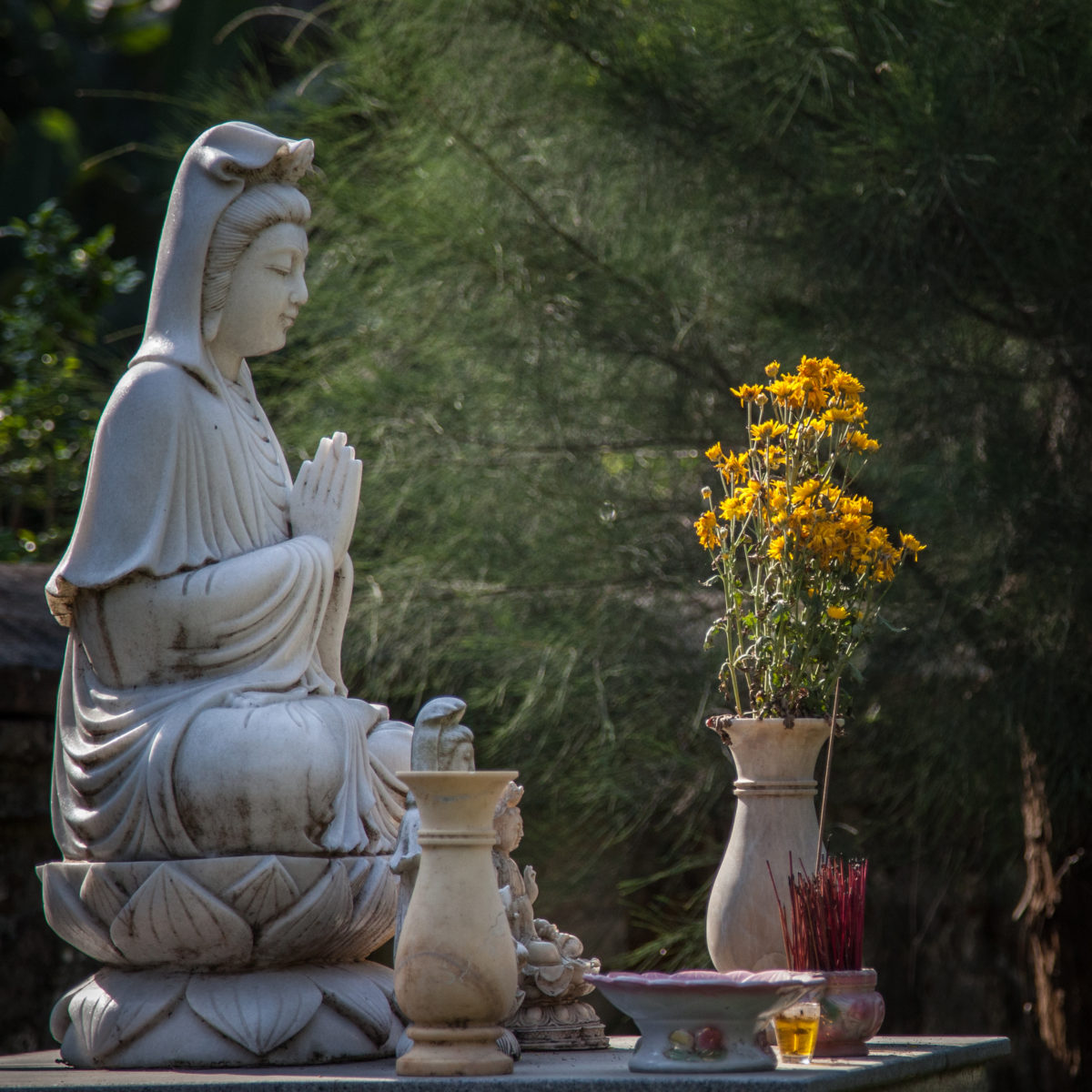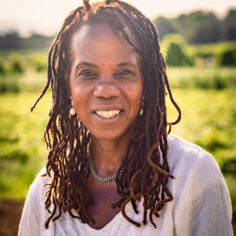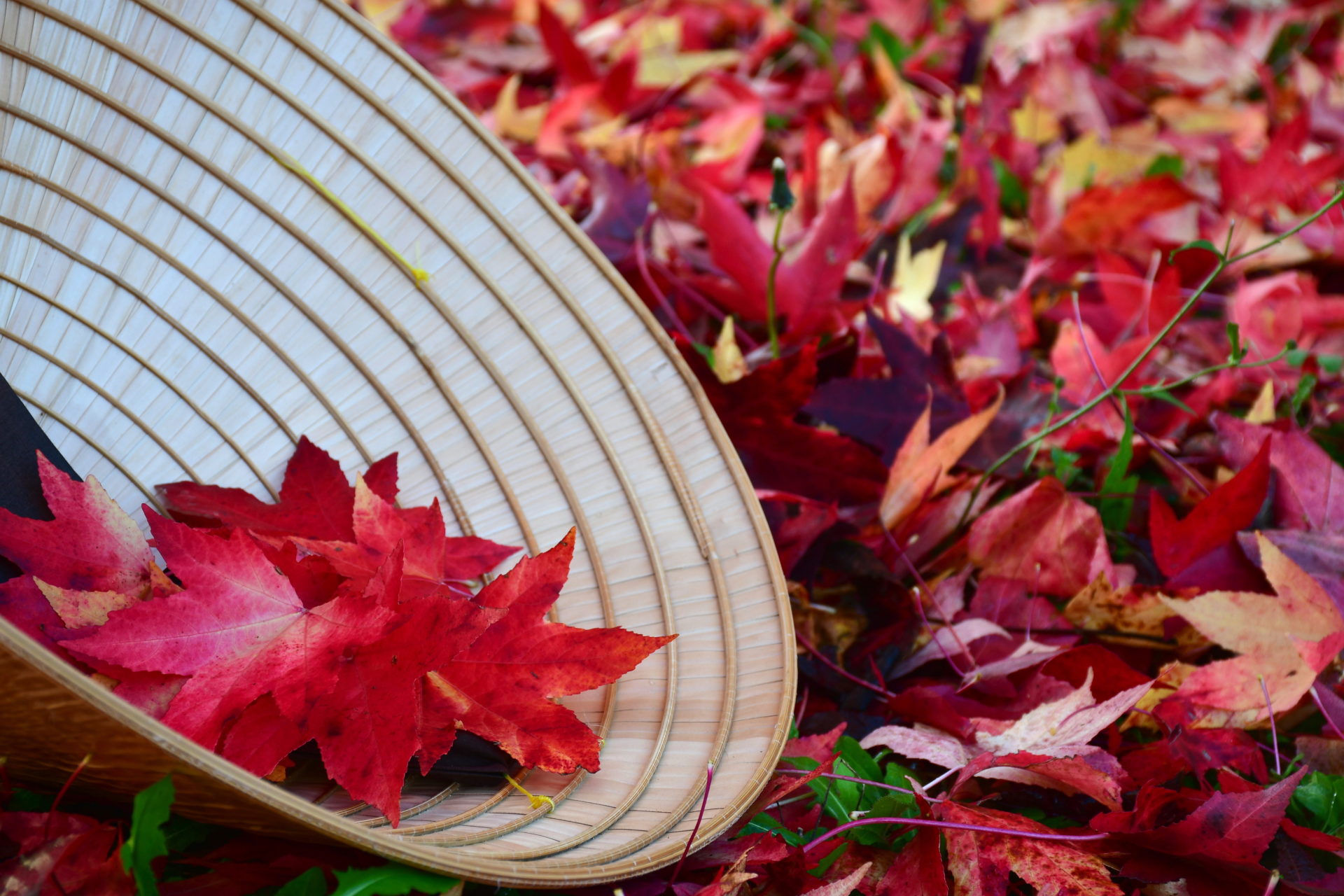By Marisela B. Gomez MD, Valerie Brown in October 2021

Marisela Gomez’s Personal Statement on the Writing of the Contemplations on the Five Mindfulness Trainings
The Five Mindfulness Trainings have been a wonderful remembrance of what is the ground of ethics. When I first read these, what came to my mind was “this is what my grandmother taught me.” It was easy to accept them into my life as the light guiding my way.
By Marisela B. Gomez MD, Valerie Brown in October 2021

Marisela Gomez’s Personal Statement on the Writing of the Contemplations on the Five Mindfulness Trainings
The Five Mindfulness Trainings have been a wonderful remembrance of what is the ground of ethics. When I first read these, what came to my mind was “this is what my grandmother taught me.” It was easy to accept them into my life as the light guiding my way. As I have practiced with them, I would have reflected in my mind and heart ways to interpret them for others and to perhaps reach folks who are more marginalized because of their social identities or orientations. So when Valerie Brown, a good friend and mentor, suggested we comment on them to include reflections on the persistent structural and systemic racism that the disparity of the pandemic has magnified, I smiled: what an opportunity to reach folks who may not see themselves in the current beautiful offering.
Then the murder of our sibling George Floyd inspired us even more to offer these contemplations on the Five Mindfulness Trainings. In the process of writing these contemplations, I found greater spaciousness and ease and felt like I was learning and receiving more fully the Five Mindfulness Trainings. These contemplations are not an attempt to supplant the original beautiful Five Mindfulness Trainings by Thich Nhat Hanh and the mahasangha. They are an invitation to whoever may not have felt included to understand that “yes, I see myself here.”
Valerie Brown’s Personal Statement on the Writing of the Contemplations on the Five Mindfulness Trainings
The writing of the Contemplations of the Five Mindfulness Trainings: A New Paradigm for Racial Justice and the Global Pandemic began in 2019, as I supported my brother month after month during his treatment for chronic heart failure, which eventually led to his death in February 2020. I was motivated to write the contemplations to understand my feelings and to offer support to others who were suffering from racialized violence. Not only grieving the death of my brother months earlier, and then his wife a few months later, I was also mourning the end of my ambiguous and complicated marriage. This was followed by desperate months of quarantine, isolation, and physical distance.
Each day revealed new and disturbing information about the disproportionate impact of COVID-19 on Black and Latinx people, immigrants, and low-income communities. And then came the unlawful police killing of George Floyd, Breonna Taylor, and others with worldwide and national protests, and the movement for Black Lives Matter, calling to defund police. As one event cascaded into the next, I knew instinctively to turn to the Plum Village mindfulness practice and teachings. Months before on a visit to Blue Cliff Monastery, just as I was about to walk to the front of the Great Togetherness Hall to offer a Dharma talk, a nun approached me and gave me a copy of the sutra on transforming violence and fear. I turned to this sutra to help me understand my own feelings and the colliding events within the United States and beyond. I read and reflected on the sutra almost daily and then began reading the Third Mindfulness Training, “True Love,” because love seemed distant and inaccessible. Each day, line by line, I read and reflected on this training and the sutra under the presence of the global pandemic and social justice upheaval.
To support my healing and deepen my understanding as a new Dharma teacher, I attended the online Healthy Boundaries Training Program by the Faith Trust Institute to learn the fundamentals of healthy and appropriate boundaries in spiritual student-teacher relationship, the impact of appropriate vs. inappropriate boundaries in promoting effective teaching, and the guidelines for developing appropriate boundaries and necessary self-care strategies. During the program, I began to reframe my beliefs around power. As a Black woman, I realized that I was overly identified with my nondominant social group identity and saw myself as lacking power because of it. The course came at a time when I was feeling particularly powerless, and it helped me to acknowledge the presence of power in my life and work and to understand power dynamics in the student-teacher relationship.
Shortly after my brother died, as protests for racial justice in the United States spread rapidly with calls for a reckoning on race, I participated in a two-hour virtual healing gathering for Black, Indigenous, and people of Color (BIPOC) sponsored by Liberate—a mindfulness app designed for BIPOC—and led by the popular meditation teacher, Ruth King. Hundreds of people gathered, expressing grief, rage, and anger. I felt confusion and anger as I listened to King and others. And then in the chat, someone asked a life-changing question: How do you fight injustice without hating?
The question became a bell of mindfulness for me. I continued to read and reflect on the sutra, the Third Mindfulness Training, and this powerful question. I began to think deeply about power dynamics and how to offer my power more skillfully and in greater service to others. The contemplations emerged from this reflection. I spoke to Marisela Gomez, a dear friend and mindfulness practitioner, and we agreed to write an essay. The last time we wrote an essay together was in 2015, when a white supremacist murdered nine Black worshippers at the historic Emanuel African Methodist Episcopal Church in Charleston, South Carolina. I wrote the contemplations to better understand my feelings, as a path of self-healing and self-love, and to offer love and support to others.
Contemplations on the Five Mindfulness Trainings: New Paradigm for Racial Justice and the Global Pandemic
Let us open to a new and deeper way of understanding the Five Mindfulness Trainings, guiding principles for mindful and ethical living, which call us toward individual and collective awakening, compassion, and peace. We are aware that we are interconnected. What happens in Wuhan, China, affects people in New York City. What happens to the Black body affects all bodies. We are called forward.
The global pandemic is a gateway to suffering worldwide, disproportionately impacting Black people, Indigenous people, and people of Color, who face poverty, sickness, displacement, and death. We are not alone. Our lives and livelihood are interconnected. We are called forward.
We cannot exist independent of low-wage workers, healthcare workers, unhoused people, single mothers, undocumented people, the unemployed and underemployed. If one such person lives on the knife-edge of racial, ethnic, social, structural, and systemic oppression and discrimination, we are all affected. We are called forward.
The practitioner dwells in the now, recognizing equanimity and instability, discrimination and nondiscrimination, ill-being and well-being, practicing Right View and engaged through compassionate action. Aware of the cycle of racial, ethnic, and social inequities and discrimination, we courageously turn to practice wholeheartedly. We are called forward.
Lighting a stick of incense, listening to the sutras, sitting upright and solid, palms joined, the practitioner looks within and in concentration the path and fruit of skillful action is revealed. We are called forward.
Speak aloud these words with the Sangha voice, a true river of understanding.
Contemplation on The First Mindfulness Training: Acknowledging Beauty as Reverence for Life
Aware of the suffering caused by oppression and generational harm based on racial, cultural, social, and ethnic inferiority and superiority and its resultant structures of injustice and harm, I acknowledge the beauty and violence inherent in life. I vow to resist being complicit in systems and structures that continue to perpetuate violence and hatred instead of reverence of life for marginalized groups. I recognize that each person contributes to my individual and our collective awakening and the co-creation of a world that celebrates and affirms differences and similarities. All living beings can teach me something when I remember to pause, breathe, listen deeply with a calm and open mind and heart, and ask myself: “Is there more?” or “What else is here with me?” I honor and respect all life guided by Right View and Right Energy.
Contemplation on The Second Mindfulness Training: Belonging and Connecting as True Happiness
Aware of the suffering caused by ignorance and aversion of my own and others’ racial, ethnic, cultural, and social history, its legacy, and how this affects me whether I am aware of it or not, I am committed to connecting to these histories. I know that turning toward these histories with an open heart is my journey of awakening to true belonging. I will take the time to learn the history of the racial and ethnic group I identify with and the histories of other socially constructed racial and ethnic groups. Aware that there is no genetic or biological difference between different racial and ethnic groups and that these identities were constructed by one group to establish dominance over others, I will turn toward racial and other forms of othering with an open heart and compassionate action. I know that this history has led to fragmentation inside and outside my body and mind and brought much suffering to all beings.
I vow to transform this suffering through the practice of connecting with an open heart. I will notice when emotions of belonging and othering arise, and I will ask myself why. Whatever feelings, perceptions, or mental formations arise I will embrace and when needed engage with love in action. I am committed to practicing Right Resolve, Right Speech, Right Action, and Right Livelihood so I can help relieve this legacy of racial and social suffering. I will practice looking deeply to see that true happiness is not possible without true connecting, leading to belonging and understanding.
Contemplation on The Third Mindfulness Training: Cherishment as True Love
Aware of the suffering caused by discrimination and oppression, I vow to understand its roots. I will acknowledge and practice to transform seeds of discrimination in myself as well as in my Sangha and the society at large. I vow to recognize the ways in which I have benefitted or not benefitted explicitly or implicitly from systems and structures that foster discrimination and injustice. I am aware of the legacy of violence, especially unlawful police violence, perpetrated against Black people, Indigenous people, people of Color, differently abled people, people of various gender identities and expressions and sexual orientation, and others who are marginalized. I acknowledge the lived experience of all people to deepen my capacity for understanding and for greater compassionate action.
I am aware that narrowly constructed, prevalent interpretations of intimate relationships constrain how we cherish each other in our expression of love, leaving many further isolated and alienated. I am committed to looking tenderly at my suffering, knowing that I am not separate from others and that the seeds of suffering contain the seeds of joy. I am not afraid of bold love that fosters justice and belonging and tender love that seeks peace and connection. I cherish myself and my suffering without discrimination. I cherish this body and mind as an act of healing for myself and for others. I cherish this breath. I cherish this moment. I cherish the liberation of all beings guided by the wisdom and solidity of the Sangha. This is my path of true love.
Contemplation on The Fourth Mindfulness Training: Vulnerability as Loving Speech and Deep Listening
Aware that vulnerability is the essence of our true nature, our humanness, I vow to risk listening and speaking nonjudgmentally with understanding and compassion to alleviate suffering and support peace in myself and others. I vow to live with empathy, compassion, and awareness and to listen for understanding rather than disagreement. When I’ve hurt others through my unskillful action or speech, I vow to practice making a good apology that acknowledges what I have done and offers sincere regret, knowing that this supports the other person and me. I am committed to speaking that aligns with my highest aspiration and encourages honesty and truthfulness. I am committed to generous and courageous listening that bridges differences and supports understanding of others who may be different from me. I am committed to taking meaningful steps to become a true instrument of peace and to help others to be the same.
When I am not able to understand the experiences of others, I vow to come back to my breath and my body, and to offer myself gentle patience while learning to support myself in developing greater awareness and skill. I vow to practice awareness of my beliefs, perceptions, feelings, aversions, and desires and to take refuge in mindful breathing and in the Sangha to support greater stability, peace, and understanding. Through my practices of vulnerability, patience, forgiveness, and deep listening, I know that my speech will be guided by love and understanding. Practicing in this way supports Right Speech and Right Action and guides me to Right Insight.
Contemplation on The Fifth Mindfulness Training: Welcoming as True Nourishing and Healing
Aware of the suffering caused by the consumption of an inadequate history of racial and ethnic forms of social segregation, I am committed to healing myself and the world by welcoming and practicing with this awareness. I will notice how my thoughts, perceptions, feelings, words, and actions may have been influenced by this inaccurate history. I will look deeply to understand how both physical and mental health—for myself, my family, and my society—have been influenced by embracing and denying this racial, social, and ethnic history of inferiority and superiority and its legacy of inequities and injustices.
I will cultivate joy to support me toward individual and collective wholeness. I will practice mindfulness of the Four Kinds of Nutriments to become aware of how edible foods, sense impressions, volition, and consciousness are all influenced by this history. Practicing with Right Energy and Right Resolve, my Right Action of consumption will include awareness of certain websites, electronic games, TV programs, films, magazines, books, and conversations and how they continue to foster wrong perceptions of racial, ethnic, and social injustices.
My understanding of interbeing supports my conscious consumption that sustains a healthy understanding of differences, one that does not oppress or discriminate. This Right Insight will preserve peace and joy and bring healing in my body and consciousness and in the collective body and consciousness of my family, my society, and the Earth. To assure that my descendants do not live in a racially, ethnically, and socially unjust world, I commit to diligently practicing with true welcoming on this path to nourish and heal myself, the Sangha, and society.
The Five Mindfulness Trainings keeps us centered in life’s storms and joys and reminds us that life is a precious gift. The Trainings are a path to liberation and transformation. Practicing these trainings supports us toward racial and ethnic reconciliation and social change and heals deep suffering. The Five Mindfulness Trainings help us cross this shore of suffering and brings us to the side of true awakening and love.
We are called forward.



